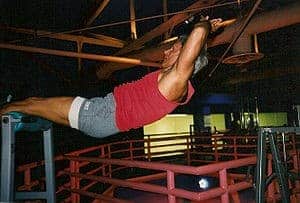Endurance expert suggests drugs could help ‘lazy people’ exercise In what has been described as ‘doping for lazy people’ a University of Kent endurance expert has advocated the use of psychoactive drugs to encourage sedentary people to exercise.
Together with lack of time, physical exertion is one of the main perceived barriers to exercise. This is not surprising because humans evolved to be ‘lazy’, i.e. to conserve energy. Professor Samuele Marcora suggests that reducing perception of effort during exercise using caffeine or other psychoactive drugs (e.g. methylphenidate and modafinil) could help many people stick to their fitness plans.
Whilst acknowledging that such an intervention is both drastic and controversial, Professor Marcora points out that perception of effort is one of the main reasons why most people choose sedentary activities for their leisure time. Compared to watching television (zero effort), even moderate-intensity physical activities like walking require considerable effort. He says finding a way that makes people with very low motivation to do even moderate exercise, like walking, could be particularly useful.
Similarly, a reduction in perception of effort would be very helpful to the many people who find exercise difficult because they are overweight and/or exercise after work in a state of mental fatigue.
Professor Marcora also states that whilst there is no strong ethical opposition to the use of psychoactive drugs to help quit smoking (nicotine) or treat obesity (appetite suppressants), the negative perception of doping in sport may prevent the use of stimulants and other psychoactive drugs to treat physical inactivity.
Given that physical inactivity is responsible for twice as many deaths as obesity, he hopes that psychopharmacological treatment for physical inactivity will be considered fairly and seriously rather than immediately rejected on the basis of unrelated ethical considerations about doping in sport.
Professor Samuele Marcora is Director of Research at the University of Kent’s School of Sport and Exercise Sciences. His paper Can Doping be a Good Thing? Using Psychoactive Drugs to Facilitate Physical Activity Behaviour has been published in the journal Sports Medicine.



already it was impossible.I drew on the same reeuorcss when last year Gary you may remember I started 9th October 2012 until 28th April 2013 a 200 day fast comprising 3 periods of 40 days 24/7 water alone, separated by 2 periods of 40 days water and rice alone. Since the end of the fast I have eaten only rice, water, salt and cups of tea, and I never felt better nor thought more clearly than I do now. I’m getting ready on 1st October to do it all again, and I am looking forward to the first 40 days again on water alone 24/7. I highly recommend testing yourself to the limit as Gary has and I’m sure he will be the first to agree it is a fabulous way to obtain a really intimate look at how fabulous your mind really is. When you do a 200 day fast you quickly find in your own mind a committee of personalities trying to find some often exotic ways to subvert your goal, and I sent them all packing with a chuckle. I remember after the first ten days I began to smell fried onions and burgers For three days but it didn’t trouble me, it was a very pleasant smell to me which I allowed myself to enjoy yet I had made my decision and so I was not tempted by the phantom smell.In closing if your mantra is Yes but! become a What if? success person, and you can achieve any goal. Even impossible goals are in reach.WarningDo not under any circumstances attempt any kind of fasting without staying in close communication first with your doctor, as I did. Make sure you get a before and after blood test because you may well be surprised that assuming you are healthy, our bodies are clearly equipped for extended periods with little or even no food, but WATER is the key to survival 1 oz water per pound of body weight daily. That’s around 9 pints for a 180lb person.